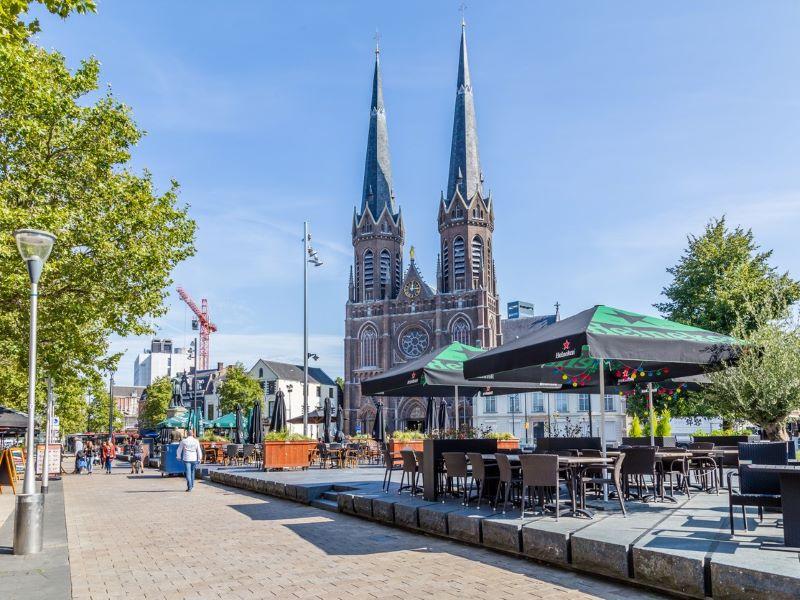I would like to provide 10 tips for anyone interested in doing academic work in the Netherlands to help them make a smooth transition. I recently finished a postdoctoral fellowship at Tilburg University in the Netherlands. While this was a hugely enriching experience, I believe my three-year stay would have been more enjoyable had I known more about the Netherlands when I arrived. Although I used the internet to learn about Dutch culture before moving, I lacked some crucial information. For this reason, I will share what I wish I had known when I came to the Netherlands.
- Bringing international and intercultural dimensions into your programmes
- Strangers in a strange land: how supervisors can support international research students
- Taking the shock out of culture shock: helping international students navigate transitions, part one
But first I will explain why I found doing academic work in the Netherlands enriching.
- I learned a tremendous amount by being exposed to a very different culture. I became more aware of my assumptions, taken-for-granted beliefs, and ways of communicating. I found that my experience in the Netherlands broadened my mind. Not only did the Dutch people have a different outlook, but they also had a completely different way of communicating.
- I grew as a professional and as a person. I liked Dutch academia because there were ample opportunities to engage in professional and personal development. Training programmes are available even when they are costly for the university. There is conference funding for postdoctoral fellows. I could travel to conferences easily in the Netherlands because it is not a big country. Many Dutch cities are within easy travelling distance of one another.
- Another bonus is the generous holiday leave of 40 days. I did not use all my days off so I could use this funding to pay for additional professional development training. Since PhD students are employees in Dutch universities, they receive various benefits. In general, the universities pay academic staff good salaries. I would recommend spending time in the Netherlands because it is a beautiful country with a rich cultural life.
I experienced challenges and a great deal of misunderstanding (on both sides) while in the Netherlands. I want to share information that could hopefully make the transition smoother for those who choose to work there.
Finding a place to live
1. I moved from Tilburg to live in The Hague. Many of my international colleagues lived outside Tilburg, too. It is easier for foreigners to settle in cities with expats and a multicultural population, such as Amsterdam, The Hague, Rotterdam, Eindhoven and Utrecht. In my case, the commute was only one hour on a comfortable train.
2. After a time-consuming and fruitless search for an apartment to rent, I paid a real estate agent to help me. There is a shortage of rental housing in the Netherlands. Landlords conduct interviews and choose a tenant based on their preferences. While hiring an agent can initially seem more expensive, it can save you time and money by speeding up the process. I found myself in a lovely apartment on the first day of viewings when I used an agent.
Establishing relationships
1. A Dutch person and an expat told me that Dutch people might be reluctant to be friends with foreigners because they see relationships as an investment. They may be less willing to make friends with someone they think is in the Netherlands temporarily. If you want to make Dutch friends, then learning some Dutch will help immensely. It signals your commitment to and interest in the Netherlands.
2. I was lucky to meet several Dutch people who were very helpful. I was told that Dutch people might be less helpful towards those who do not speak Dutch or if they do not have a close personal relationship with someone. They may not provide all the information you require, for example. If you have problems with your internet or another matter, it may be worth asking a Dutch person to call on your behalf.
3. The Netherlands is a small country. People can be connected to each other in unexpected ways. They can put these relationships first, especially if you are not a permanent staff member. Although this will not be the case for everyone, it is likely to have an impact in various situations. Therefore, if you cannot resolve an issue directly with a person, be careful, tactful and diplomatic when you bring up the matter with someone else.
4. While you can tell the Dutch people what you appreciate about their country, I would suggest being brief and not being surprised by the lack of shared enthusiasm. I remember talking excitedly about the tulip farms and how beautiful the fields looked. My Dutch listener explained that she viewed tulips as ordinary because she had been around them all her life. Other Dutch people explained that they saw waffles, Delft blue porcelain and other items for which the Netherlands is famous as tourist gimmicks.
Communicating effectively
1. I frequently got caught in misunderstandings because Dutch communication is very direct. There are no multiple meanings of words and sentences. There is no word play. There is no rich underlying context behind communication. If you tell students that they might want to read a book, do not be surprised if they do not do the reading. It is better to tell students that you would like them to read a specific book. Be clear and specific when you disagree. If you adopt an indirect approach to communication to avoid confrontation, the Dutch person may assume that you agree.
2. Dutch directness means that Dutch people may not realise when they appear rude. Three individuals from European countries and one Dutch expat living in the UK told me that they sometimes experience Dutch communication as rude. You need to make a judgement call on when to point out the rudeness to the Dutch person and when to accept it as a cultural by-product. In general, the direct nature of communication in the Netherlands makes it hard for the Dutch to understand the concept of microaggression. A more productive approach is to explain to the person how you feel and how your cultural background shapes your perception of the situation.
3. There is no word for racism in the Netherlands. The Dutch promote a culture of colour-blindness. If you use the word racism, you may encounter a blank stare. For this reason, I recommend that you learn about the history and culture of the Netherlands so you can communicate with the Dutch in a relatable way. For example, initially, you could refer to equality, fairness and the value of making everyone feel welcome instead of using terms such as racism. Once you see a glimpse of understanding in the eyes of a Dutch person, you can start providing information on what racism is and what aspects of a situation implicate racism.
4. I found my efforts to contribute to positive change much more fruitful after I joined grassroots advocacy groups. I would initially avoid creating any perceived sense of division in the group, so you do not appear to be criticising. Everyone has insecurities and a desire for a sense of safety. You can use language that communicates that you are all participating in a communal effort to improve something. I appreciate the advice I received that I should first build positive relationships with colleagues before venturing into conversations on sensitive topics with them.
Do you like to plan for the long term? Someone who has lived in the Netherlands for many years told me that even those who learn Dutch, have a Dutch partner and have lived in the Netherlands for a long time still feel like foreigners. The divide is problematic. Nevertheless, it is possible to enjoy the country and its people. It is for you to decide whether you can be happy in such circumstances. The way I see it, any place has its own set of challenges, and it takes skill to be successful in each setting. For those of you who wish to explore academic work in the Netherlands, you can find vacancies at Academic Transfer. I wish you much luck, success and enjoyment in your stay.
Tetyana (Tanya) Krupiy is a lecturer in digital law, policy and society at Newcastle University.
If you found this interesting and want advice and insight from academics and university staff delivered direct to your inbox each week, sign up for the THE Campus newsletter.




comment2
(No subject)
(No subject)